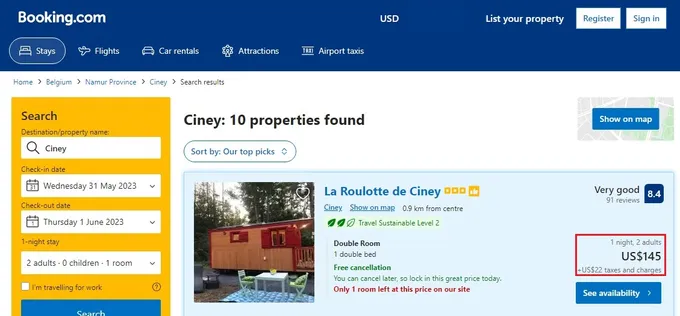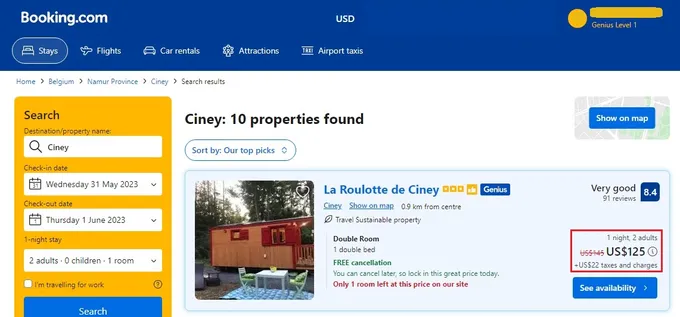Decoding Personalized Pricing: What It Is and How It Works
Take your personalization efforts up a notch with personalized pricing. Learn what it is, how it works, and how it can benefit your eCommerce store.
Updated November 19, 2024.

Research shows that increasing the average price of online goods by just 1% leads to an 11% boost in operating profit. But just changing your prices isn't enough—you need to use the right strategy.
Personalized pricing is a data-driven pricing strategy that can help you enhance your personalization efforts by giving customers individual offers based on their history and preferences. Below, we decode personal pricing by outlining what it is and how it works to help you remain competitive and better meet the needs of your customers.
» Start at the beginning: What is personalization?
What Is Personalized Pricing?
Personalized pricing is a strategy that tailors prices to individual customers based on their personal data, such as purchase history, browsing behavior, or preferences.
Personalized pricing aims to optimize the price of goods or services for each individual, so you can build meaningful connections with different customer groups and expand your sales.
It's important to differentiate between personalized pricing and dynamic pricing. Where personalized pricing focuses on the individual, dynamic pricing adjusts prices based on external market conditions like product supply and demand, seasonality, and competition.
Personalized pricing exists in different forms, including:
- Customer-based pricing: Prices are tailored to individual customers based on personal data, such as browsing behavior and order history.
- Demand-based pricing: Prices are adjusted in response to market demand and other relevant factors to reflect current conditions.
- Location-based pricing: Prices vary based on geographic location, allowing you to adapt pricing strategies to specific regions or markets.
» Discover how personalized pricing can improve your website search results
How Does Personalized Pricing Work?
Personalized pricing works through intelligent algorithms and advanced technologies like machine learning and AI. These tools analyze real-time demand and customer data and, with predictive personalization, calculate prices that will appeal to individuals.
Using personalized pricing, you can adapt your prices as and when needed to maximize revenue and cater to shopper preferences. Personalized pricing is a common strategy in the hospitality industry, which uses a broad range of customer data, including device type, location, booking history, and browsing history.
For example, the online travel agency Booking.com uses customer data and AI algorithms to determine accommodation rates for each customer. As you can see below, the rates differ for the same accommodation, dates, and number of people.
However, the searches were done by two people on separate devices and in different locations. In this instance, the second customer, who had a Booking.com account and had made previous bookings through the website, was charged $20 less than the first customer.
Benefits of Personalized Pricing
1. Improved Customer Experience
An enhanced customer experience lies at the core of personalized pricing. For example, an online fashion retailer analyzes customer data to offer tailored pricing options. By seeing each customer's preferences and purchase history, the merchant can provide personalized discounts and promotions on items that align with their unique style.
This strategic approach creates a seamless and gratifying shopping experience where customers feel valued and understood.
2. Higher Customer Loyalty
As customers have better shopping experiences, their increased satisfaction often fosters customer loyalty. Tailoring prices to meet individual needs and offering targeted discounts, promotions, and product bundles allows you to build stronger relationships and establish a deeper connection with your customer base.
When customers receive personalized offers that cater to their unique interests, they feel valued and are more likely to remain loyal.
» Read more about how to address barriers to brand loyalty
3. Increased Market Share
In the quest for market dominance, personalized pricing is a powerful tool that strategically distinguishes you from your competitors. Tailoring prices to individual preferences and needs gives you a significant advantage in attracting and retaining customers. With personalized pricing as a key strategy, you can forge your path toward market leadership.
4. Increased Revenue
By tailoring pricing options to individual customers' specific preferences and behaviors, you can enhance the appeal of your offerings. Improved customer satisfaction and loyalty and gaining a competitive edge over rival stores drive more sales and revenue—both in the short and long term.
Ethical Considerations
Personalized pricing raises some ethical concerns that you must address.
- Fairness of different prices When companies increase product prices because demand outweighs supply, they potentially price out individuals with limited purchasing power or those who prefer to buy products at regular prices. This practice can perpetuate disparities and create a perception of inequity among consumers.
- Privacy and transparency regarding personal data Businesses often rely on AI to boost conversions, employing algorithms that operate behind the scenes to collect and analyze customer data. However, customers are often unaware of how these algorithms determine their personalized prices. To address this, consider offering customers the option to opt out of personalized pricing and empowering them with knowledge about the practices involving their personal data.
Personalized pricing is advantageous for you and your customers when you aim to find the best balance between generating the most revenue and offering customers the best deals.
Get Ahead of the Competition Fast With Personalized Pricing
This individualized approach to pricing is fast becoming one of today's online shopping trends, with more brands investing in sophisticated technology to display the right price to the right shoppers at the right time.
As AI in eCommerce continues to grow exponentially, the future of personalized pricing is bright. But if you decide to incorporate this pricing strategy, it's essential that you work to develop personalized pricing strategies that prioritize fairness for customers.
» Learn more about the personalization experience and how else to implement it in your store






